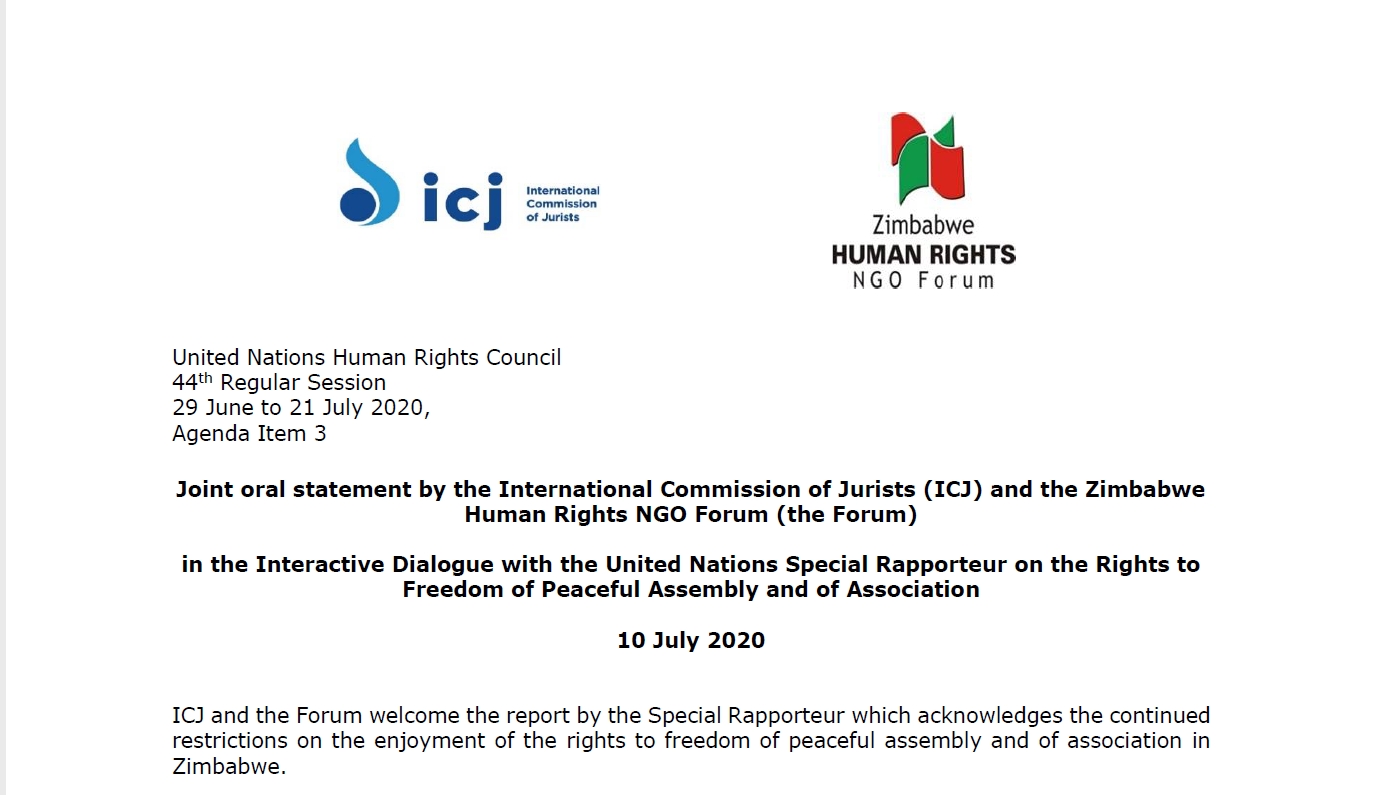The ICJ and the Zimbabwe Human Rights NGO Forum highlighted today concerns on freedom of association and assembly in Zimbabwe, on the occasion of discussion by the Human Rights Council of a report of the relevant UN expert’s visit to the country.
The statement was prepared for delivery in an oral interactive dialogue with the UN Special Rapporteur on freedom of association and assembly on his reports to the Human Rights Council, including the report of his visit to Zimbabwe in September 2019.
The statement could not actually be read aloud due to the limited time for civil society statements in the dialogue.
The joint statement reads as follows:
“ICJ and the Forum welcome the report by the Special Rapporteur which acknowledges the continued restrictions on the enjoyment of the rights to freedom of peaceful assembly and of association in Zimbabwe.
The report mentions the use of excessive and lethal force by security forces; the use of military forces in managing protest; and the subsistence of repressive laws that curtail the enjoyment of the rights to Freedom of assembly and association.
ICJ and the Forum agree with the findings by the Special Rapporteur that the use of disproportionate and excessive force by the security has resulted in massive violations against protestors. In January 2019 following the “shutdown protests”, the Forum documented at least 1800 violations including 17 killings, 16 cases of rape and 81 victims were treated for gunshot wounds while ICJ documented at least 77 incidences of violation of fair trial rights of protestors.
The Maintenance of Peace and Order Act [Chapter 11:23] (MOPA) was enacted into law in November 2019 to repeal the Public Order and Security Act (POSA). MOPA reveal common similarities with POSA and maintains problematic provisions that do not guarantee the right to peaceful assembly.
ICJ and the Forum wish to draw the attention of the Special Rapporteur to the ongoing violations which have escalated in the context of the COVID-19 lockdown enforcement and the declining economic and social situation in Zimbabwe. While public health measures are crucial, these must be advanced in ways that do not unduly infringe on the rights to freedom of peaceful assembly and of association.
The government of Zimbabwe must be encouraged to comply with International human rights standards and guidelines such as the Guidelines for the Policing of Assemblies by Law Enforcement Officials in Africa; the United Nations Basic Principles on the Use of Force and firearms by law enforcement officials and the 10 principles for the Proper Management of Assemblies developed by the mandate in 2016.
ICJ and the Forum would to like to ask the SR what follow up he will do to monitor whether the Government of Zimbabwe complies with its international human rights obligations?”
The statement can be downloaded in PDF format here: UN-HRC44-statement-SRFoAA-2020




